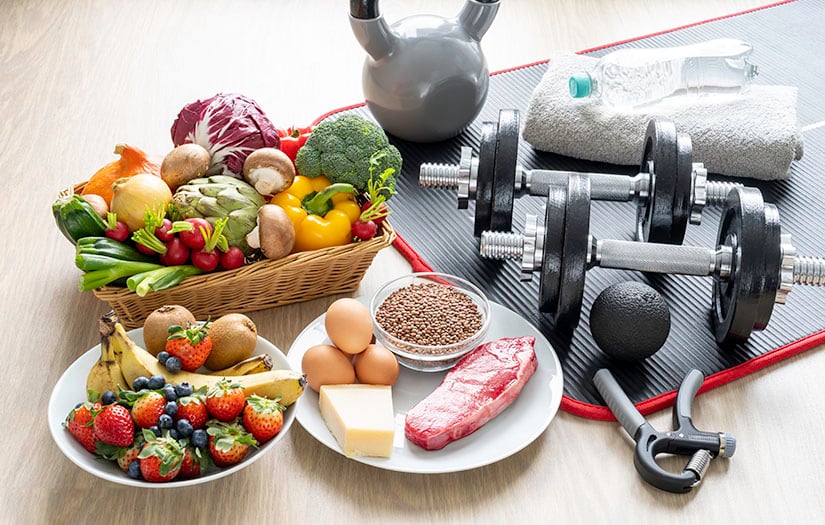Armed sports nutrition
The sports nutrition program focuses on the application of nutrition principles as they relate to sport and human performance. Students will explore how nutrition impacts performance MelBet Review. Graduates will be prepared for careers including sports nutrition, personal training or work in the fitness industry, including product development and research. Students may choose to supplement their academic training with national certification in a specific area including personal trainer, strength and conditioning coach or health coach.
As specialized dietitians, sports nutritionists work directly with athletes to expose them to a more nutrition-conscious lifestyle. This role can include working with a professional sports team, in a college or university athletic department or helping young athletes get off to a healthy start by partnering with youth sports organizations or K-12 educational institutions. Sports nutritionists may also go into private practice to support clients in all of these areas.
As a sports dietitian, you should never stop learning. You should also keep an open mind. A curiosity about athletics, nutrition, and how to best support your clients is the best way to help athletes and continue advancing in your career.
Armed sports nutrition
The type of activity that an athlete engages in also affects their fat requirements. For example, endurance athletes need a higher proportion of fat to fuel their exercise. However, fats are not as effective in high-intensity exercise as carbohydrates.
Currently, Informed Sport is recognised by the British Armed Forces, the US Department of Defense, and the New Zealand Defense Force. Protect your career and reputation with safer military approved supplements that are tested and certified by Informed Sport.
A recent study found that athletes have an increased need for protein. Researchers measured how much athletes ate in grams per kilogram of body weight. The results showed that they need more than the recommended daily amount.
EAA are important to maintain whole-body protein homeostasis. Free-form amino acid supplements have shown significant anabolic properties in skeletal muscle. Optimal delivery of EAA can mitigate the loss of whole-body protein and stimulate protein synthesis. Similarly, high-calorie rations can attenuate energy deficits.
Athletic athletes must adhere to stringent doping control standards and drug testing regulations, and any trace of contamination could have dire repercussions for their careers, reputations and endorsement opportunities.
Through a systematic literature review, an expert judgment exercise, and an analysis of firefighters‘ diets, the investigator created a tool to determine the specific nutrient intake in tactical athletes.

International society sports nutrition
Purpura M, Lowery RP, Joy JM, De Souza EO, Kalman D. A comparison of blood amino acid concentrations following ingestion of rice and whey protein isolate: a double-blind, crossover study. J Nutr Health Sci. 2014;1:306.
In a more appropriate comparison, Morifuji et al. investigated the effects of 12.5 g of either hydrolyzed or non-hydrolyzed soy and whey proteins on changes in plasma levels of the EAAs, BCAAs, and insulin. Results indicated that protein hydrolysates produced greater responses than their non-hydrolyzed counterpart in plasma for each of the variables (Hydrolyzed whey > Non-hydrolyzed whey > hydrolyzed soy > Non-hydrolyzed soy). However, Calbet et al. found that 36 g of hydrolyzed or non-hydrolyzed whey and casein led to no differences in the plasma amino acid/BCAA responses in the whey groups. The hydrolyzed casein, however, did result in a greater amino acid response than the nonhydrolyzed casein. Finally, both hydrolyzed groups resulted in greater gastric secretions, as well as greater plasma increases, in glucose-dependent insulinotropic polypeptides .
In 2007, the International Society of Sports Nutrition (ISSN) published its first position stand devoted to the science and application of dietary protein intake . Subsequently, this paper has been accessed more than 200,000 times and continues to serve as a key reference on the topic. In the past ten years, there have been continued efforts to advance the science and application of dietary protein intake for the benefit of athletes and fitness-minded individuals. This updated position stand includes new information and addresses the most important dietary protein categories that affect physically active individuals across domains such as exercise performance, body composition, protein timing, recommended intakes, protein sources and quality, and the preparation methods of various proteins.
The ISSN is the world’s leader in providing science-based sports nutrition and supplement information. Our peer-reviewed journal (JISSN), conferences, and attendees are the key influencers and thought-leaders in the sports nutrition and supplement field.
The International Society of Sports Nutrition (ISSN) provides an objective and critical review related to the intake of protein for healthy, exercising individuals. Based on the current available literature, the position of the Society is as follows: